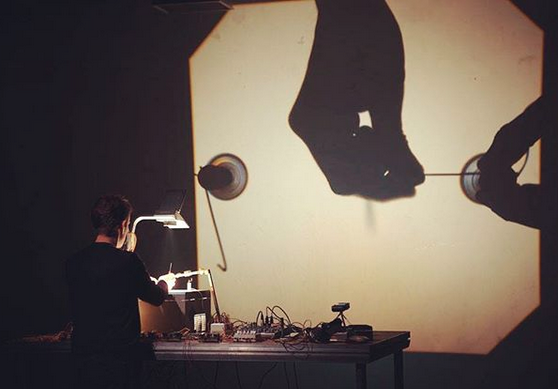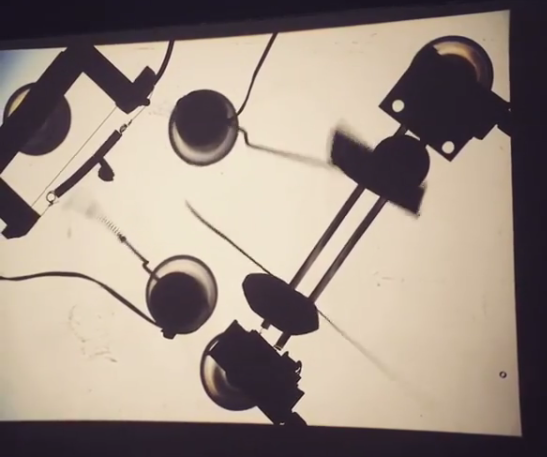
The series “thinking about / working on” features projects and processes of students, teaching staff and guests of exMedia, asking them to share thoughts on their current topics and give insight into their practice. The questions vary slightly and can be adapted by the interviewee. Our next guest in the series is Christian Faubel, artistic/academic staff member of experimental informatics in exMedia since 2012.
* What is the current focus of your work? What themes or subjects are you currently addressing in your work?
I am currently working on the synchronization of rhythmical processes, I find this interesting, because I think that with the phenomenon of synchronization becomes apparent the main difference between the analog and the digital. While in the analog, synchronization happens as an emergent effect of the subtle exchange of forces in the digital it is a necessity that has to taken care of with special rules. It is the subtle exchange of forces, with no difference between reading and writing or sending and receiving that sets apart analogue processes form digital ones. This exchange of forces in analogue processes happens as mutual exchange that does not need hierarchies or rules. On a metaphorical level I find this very promising because it allows me to phantasize about about “democratic electronics” and the utopian potential of analogue communication.
In using analog electronics I play with this emergent effect of synchronization and I explore how it is possible to create complex rhythmical structures just based on synchronizing and phase locking analog oscillators.

* What kind of materials are important to you right now and how is this expressed in your work?
Besides building analog electronic circuits with resistors, capacitors and transistors I mainly work with the sound of motors hitting on things. Here the very materiality of these things matters. For example I found that a special rubber tube produces a very deep bass sound when hit with a motor or that higher-pitched shorter rubber can be tuned into sounding more like a bell just with a bit blue-tack.
Another material I recently re-discovered for my work is the spring reverb. The spring reverb is an effect that you find in some guitar amplifiers and I buy them as spare part on ebay. It is based on an electro-magnetic pickup that is agitated by a spring. What I like about the spring reverb effect is that it is open to so many modification. For example, you can insert a piece of paper into the spring and the hit the paper with a stick. The resulting sound reminds of a big piece of metal sheet being hit on.
* Are materials important to you?
Yes
* What kind of processes do you use in your work?
Analogue processes, which means processes that afford interference on many different levels. It is the openness of analog processes that interests and fascinates me.